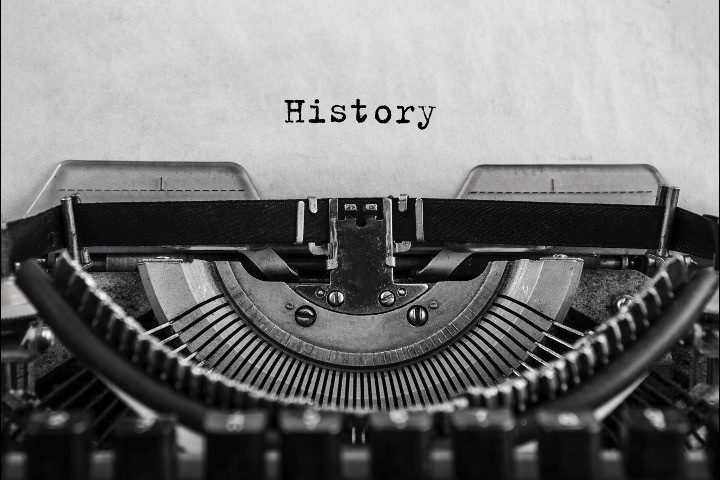
“The most effective way to destroy people is to deny and obliterate their own understanding of their history,” noted 1984 author George Orwell. All’s not well, too, because this is precisely what’s happening today — a point on which both the Right and the Left agree.
Consider a major story in the news: the rejection of the College Board’s Advanced Placement African American Studies (APAAS) course by appointees of Florida Governor Ron DeSantis. Liberal DeSantis opponents might say he’s attempting to obliterate black students’ understanding of their history, while the governor’s co-ideologists will say he’s trying to prevent the obliteration of all students’ understanding of their history.
For sure, getting history right matters, and the APAAS fails miserably in this regard, writes the Washington Examiner’s Quin Hillyer. As he explains:
Rather than being a neutral, apolitical survey of the subject matter, the APAAS pushes astonishingly one-sided Marxist content that by ordinary definitions is flat-out racist. It also effectively endorses books pushing “the hatred of bourgeois society and the readiness to destroy it” and justifying “passions of violence” among black people while actually criticizing “nonviolent civil rights activists.” The curriculum and teachers’ guide lack anything that remotely balances those views with more moderate ideas. Moreover, the entire APAAS agenda clearly is designed not just for learning but for promoting left-wing political activism.
One section of the course syllabus, according to the Florida Standard, “includes ‘Black Queer Studies.’ A description states: ‘This topic explores the concept of queer color critique, grounded in Black feminism and intersectionality, as a Black studies lens that shifts sexuality studies towards racial analysis.’”
In point of fact, many may lament that Florida’s actions weren’t taken decades ago — nationwide. Had they been, it might not now be the case that only 27 percent of the younger generations are “proud to be American.”
Hillyer not only supports DeSantis’s actions, but writes that his “prohibition of [the] black AP course should be just the start.” This is true, but perhaps in more ways than Hillyer supposes.
Even the APAAS’ name — that is, “African American Studies” — is a problem. Legendary black singer Smokey Robinson said last year, “I resent being called an ‘African-American,’” for good reason: Making the term standard is to make a hyphenated designation that references an entirely different part of the world, but doesn’t explicitly denote race, the default racial characterization for black Americans. Meanwhile, “whites” are generally described as just that, not usually as “European-Americans.”
Yet another almost universally ignored issue here is far deeper. Pushing back Friday against the accusation that DeSantis is “erasing black history,” black writer Jeff Charles defended the APAAS’ nixing and what inspired it: the “Stop WOKE Act” (the Florida anti-political correctness law enacted last year).
“The text of the legislation actually mandates the teaching of ‘the history of African Americans,’” Charles related, “which includes the ‘development of slavery, the passage to America, the enslavement experience, abolition, and the history and contributions of African Americans of the African diaspora.’”
“Indeed, this is only a sliver of the teachings on Black history required under the Stop WOKE Act,” the writer continued. Yet what here is actually being defended?
First, should there really be “black history” (or “white history”) in American schools — or just American history?
History is simply this: what happened. It’s not what some academic or activist wishes had happened or what some “creative writer” portrays as having happened. At times this is hard to ferret out, of course. The point is, however, that history should not be compiled based on racial and sex-oriented quotas, but based on objective measures of merit. If a person did something notable and “makes the cut,” he should be in the history books regardless of his race, creed, or color — and regardless of how this standard affects those books’ “diversity.”
But there’s a still deeper issue. The APAAS’ defenders and its conservative critics both accept the supposition that we “must teach about slavery”; this is, in fact, considered integral to “black history.” They just argue about how it should be taught. But is this a correct supposition?
Let’s analogize it: When you have a young child, at some point he’ll want to know a bit about his parents’/family’s “history.” So you might tell him how mommy and daddy met, why they liked each other so much, a cute story relating to this, or other things of that nature. But imagine you said:
“Well, you know, kiddo, mommy was around the block a few times with a lot of guys; I have to be honest, she had a couple of abortions as well. And daddy, whoa, he got nabbed with drugs when he was 19: possession with intent to distribute. He might’ve ended up in the pokey, too, except that his dad had pull in town and knew the local prosecutor.”
Would continuing in this vein be wise? There might be a time, during a heart-to-heart when the kid is an adult, to perhaps broach family sins. But it’s inappropriate with a kid, as it could scandalize the family. With youths, it’s prudent to focus on the positive.
It’s no different with a national family. Only a small percentage of history can be taught, especially to kids, so you must pick and choose wisely, mindful of the goal: giving the students a basic understanding of their civilization’s founding and how its meant to function and a sense of national pride.
All kids need to know about slavery is that it was once practiced throughout the world, including in America, and that it was the U.S. and the West in general that first ended it. That is, and should be, a point of pride.
As with what Lincoln said about people, those who look for the bad in a nation will surely find it. All lands have their sins — not all lands are crazy enough to brainwash their young into believing their country is the embodiment of sin. That’s how you end up with that recipe for destruction: having younger generations wherein only 27 percent are proud of their nation.



